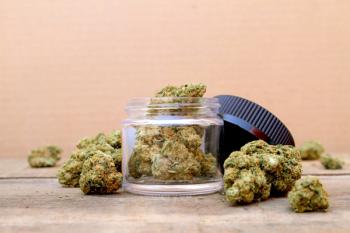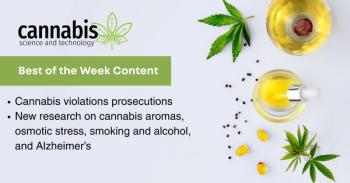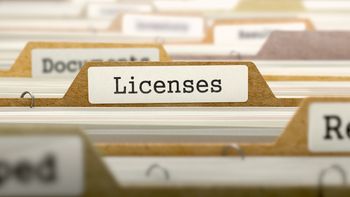
Exploring Psychedelics with a Legal Mind

While many psychedelics are classified as Schedule I drugs under the federal Controlled Substances Act, the recent resurgence of interest in their potential therapeutic benefits means the landscape around psychedelics is rapidly evolving. New laws and regulations are proposed and passed at the local, state, and federal levels. Research continues to increase as well, contributing to the questions and perspectives surrounding the various uses of psychedelics. In this interview, Dustin Robinson, Esq., CPA, Managing Principal of Iter Investments; Co-Founder of Nucleus; Founding Partner of Mr. Cannabis Law; and Co-Founder of Mr. Psychedelic Law explains how he navigates the complex legal landscape of psychedelics, the surprises and challenges he encounters, and how he envisions psychedelics in the United States in the near future.
You started with the law firm
Dustin Robinson, Esq., CPA: While representing various clients in the psychedelic industry through my law firm, I recognized that the biggest hurdle for my clients and the industry in general was reforming the law; and the best way to reform the law was through breaking down stigma through objective scientific research. Thus, I created my non-profit with the goal of helping propel the research to break stigma and ultimately drive legal reform.
How do you incorporate your commitment to the responsible and safe use of psychedelics in the guidance you give?
Robinson: Safe and responsible use is largely driven by giving deep consideration to the proper container for different uses for psychedelic use. For example, the container for using psychedelics for religious purposes is going to be different than the container for using psychedelics for medical purposes. The key drivers for building the right container are training facilitators, establishing the right regulations, and collecting research and data.
What are some of the most common questions and concerns clients are looking for your assistance with? Has anything surprised you?
Robinson: Since ketamine is an FDA-approved compound that is being used off-label for various mental and behavioral health conditions, most of the legal work I provide is for ketamine clinics and ketamine telehealth companies. One of the more surprising calls I’ve received was from a relatively large investment fund that wanted to hire me to perform diligence on an illegally operated chocolate psilocybin mushroom manufacturer in Denver, Colorado. They were planning to invest over one million dollars into the company. Although the investor was relatively sophisticated, they were still confused that the decriminalization of psilocybin mushrooms did not mean that this company can legally manufacture and sell psilocybin products. I had to explain to the investor that I cannot advise on illegal operations, and highly recommended they stay away from investing in illegal operations.
Your board includes lawyers, lobbyists, doctors, scientists, and spiritual leaders. Why is it important to represent these diverse perspectives?
Robinson: Figuring out the right legal framework for various psychedelic uses is complicated and requires multiple viewpoints. It’s important that any group seeking to draft regulations around psychedelics works with a diverse group that can address the myriad aspects, including medical, spiritual, scientific, and regulatory.
What are the most significant challenges or pushback you’ve encountered in your work?
Robinson: The stigma around psychedelics is the biggest challenge. The government has spent the last several decades building false social constructs around psychedelic medicines. Now, the research is demonstrating that the government has been wrong, and these compounds are quite safe and effective when consumed under the proper set, setting, and dosage.
Treatment with psychedelics in a medical setting can be prohibitively expensive. How are you working to ensure that the people who need treatments for mental health can access psychedelics for therapeutic use?
Robinson: Telehealth and group therapy have helped drive down the costs of ketamine psychedelic therapy. However, it’s not enough. Ultimately, these medicines need to be FDA-approved and covered by insurance. Through my investment firm,
How do you support minority groups?
Robinson: Some ways include: I am a board member of Minorities for Medical Marijuana; my law firm represents various non-profits; I host a monthly panel at Soho House where we’ve done various panels on the Black, Indigenous, People of Color (BIPOC) community; and my law firm has represented several social equity applicants for cannabis licenses.
How do your own experiences with psychedelics contribute to your views and advice?
Robinson: I went through my first 33 years of life believing the stigma around psychedelics. But, after working with various doctors through my law firm, reading the research around psychedelics, and investing in psychedelics, I decided to try psychedelics firsthand at the age of 34 years old. The experience was absolutely transformative, and the opposite of what society had led me to believe. The insights I gained in that first experience are what inspired me to dedicate most of my personal and professional time and resources to psychedelic medicines.
You’ve drafted bills around psilocybin use in Florida. What are the most important aspects to include in formulating these bills? How do you take into account the constantly changing drug policy landscape of psychedelics across the United States?
Robinson: I keep track of all the different drug policies through our portfolio company’s website:
In an article about the Florida psilocybin bill you helped draft, you said (1), “The way I see the psychedelic industry progressing is through the biopharma framework compared to the cannabis industry which is being driven by the recreational consumer-brand type market.” Where do you see psychedelics heading in the next few years in terms of research and use? Where do you hope it doesn’t go?
Robinson: 3,4-Methylenedioxymethamphetamine (MDMA) should be approved by the FDA by the first quarter of 2024, and I expect many other psychedelics to be approved by the FDA soon thereafter. Over the next few years, we are going to see the research pile up around the safety and efficacy of these compounds for various mental and behavioral health conditions as well as neurodegenerative conditions. As the research builds, we’ll see more states following Oregon and Colorado. My hope is that the regulators will take a balanced approach when it comes to broad access and safety. On the one hand, fewer regulations mean broader access; on the other hand, fewer regulations could compromise safety. My hope is that we keep the right pace of loosening up regulations because if we go too fast, there may be some bad experiences that set the industry back.
In a podcast (2), you explained that you see psychedelic use along a spectrum rather than for a single purpose. How do you see the US navigating the diversity of psychedelic uses into a regulatory framework?
Robinson: I believe there should be four main frameworks:
- religious use under the Religious Freedom Restoration Act (RFRA),
- life-threatening disease use through the Right to Try,
- spiritual or wellness use through state-sanctioned frameworks and FDA regulations around food and dietary supplements, and
- medical use through FDA drug regulations.
Each of these frameworks will need to give careful consideration to the unique aspects of psychedelics.
References
Newsletter
Unlock the latest breakthroughs in cannabis science—subscribe now to get expert insights, research, and industry updates delivered to your inbox.




